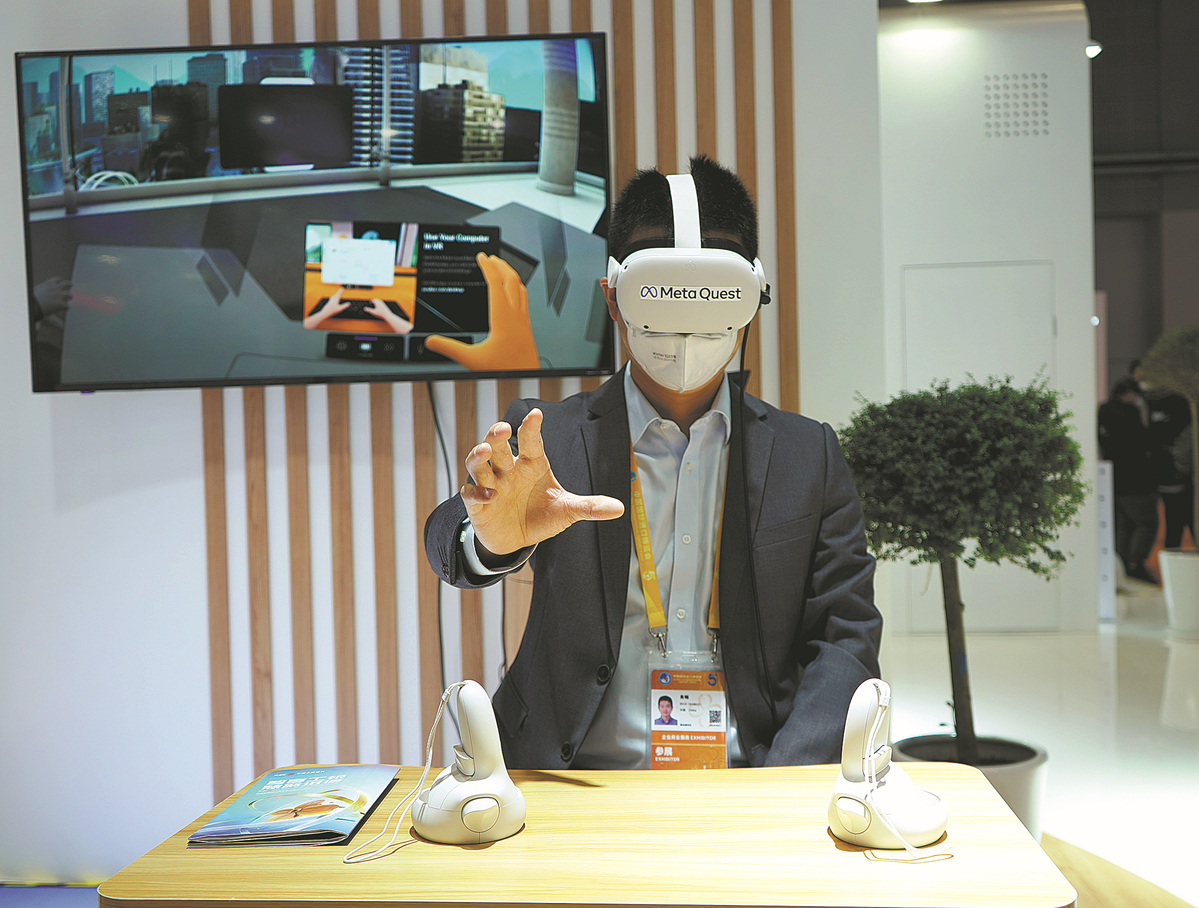Beyond controversies, where real world fuses with digital realm
By Ma Si | China Daily | Updated: 2022-12-19 09:21

Ever since the concept of the metaverse started gripping the global tech industry last year, some of my colleagues and friends have been worrying that children will become increasingly addicted to such a seemingly omnipotent virtual world.
Children who are born in the 2000s already indulge in virtual games, with their eyes glued to the screens of a variety of consumer electronics all day. What will they do if the metaverse, which roughly refers to an immersive virtual world with lifelike experiences, becomes commonplace?
A series of problems regarding the metaverse include digital "land rush" speculation, virtual currency scams and copyright disputes, which are fueling worries that such a digital realm of the future is not a desirable one.
The worries are completely understandable. The concept of the metaverse is still in its infancy and there is not even a universally recognized definition of the term. But an overhype already exists, with speculators as well as cheaters trying to cash in on the metaverse craze. Children's potential indulgence is also a main source of concern.
Despite all the controversies, however, it is worth noting that the metaverse is not just about creating a virtual world. The real idea behind the tech buzzword is a future where the virtual and physical worlds get inextricably interconnected. That is an inevitable trend, thanks to rapid technological advancements, which will bring not only changes to lifestyles, but greater opportunities for industrial upgrading, especially the integration of real and digital economies.
Instead of the current focus on its entertainment uses such as virtual games and social networking platforms, the most significant potential of the metaverse lies with industries that make up the backbone of our economies, such as manufacturing, transportation, education and infrastructure.
For example, companies can use virtual reality and augmented reality technologies, which are important aspects of the metaverse, to train employees. A string of companies have already begun training employees on how to use and maintain equipment through the use of VR headsets instead of having them use physical equipment that can be dangerous or difficult to use in a training situation.
Meanwhile, the concept of immersive learning — which combines the sense and presence of VR with learning theory, data science and spatial design — improves the learning experience for employees and students, rather than having them sit in a classroom all day.
Instead of just looking at pictures, students can have a 360-degree immersive experience of the Egyptian pyramids and even virtually "go inside" the pyramids to explore their structure by wearing VR goggles. That could be a more efficient way for them to master new information.
That is also the case in manufacturing. Digital twins, or a digital representation of real-world physical products, can combine the real and digital worlds to speed up the planning of factories, buildings and entire city districts. By connecting the digital twins to their real-world equivalents and leveraging their data, we can improve operations over the entire life cycle.
For example, BMW utilized simulation for six months at a new factory, building virtual cars on a one-to-one scale within the metaverse before deploying the final layout for the factory. In the process of those six months, the company changed about 30 percent of the design from the original based on the results of the simulation, according to Richard Ward, a senior expert on VR at consultancy McKinsey.
Such cases offer just a glimpse into how the metaverse will reshape the future. Of course, there is a long way to go before such early explorations grow into full-fledged, wide applications as long-term efforts are needed to mature technologies, application scenarios and business models to support the development of any concept.
Controversies abound for the metaverse today, which I believe will also continue for a long time, but it is vital to understand that the buzzword goes far beyond creating a virtual world. Bridging the digital and real worlds is its essence.
























